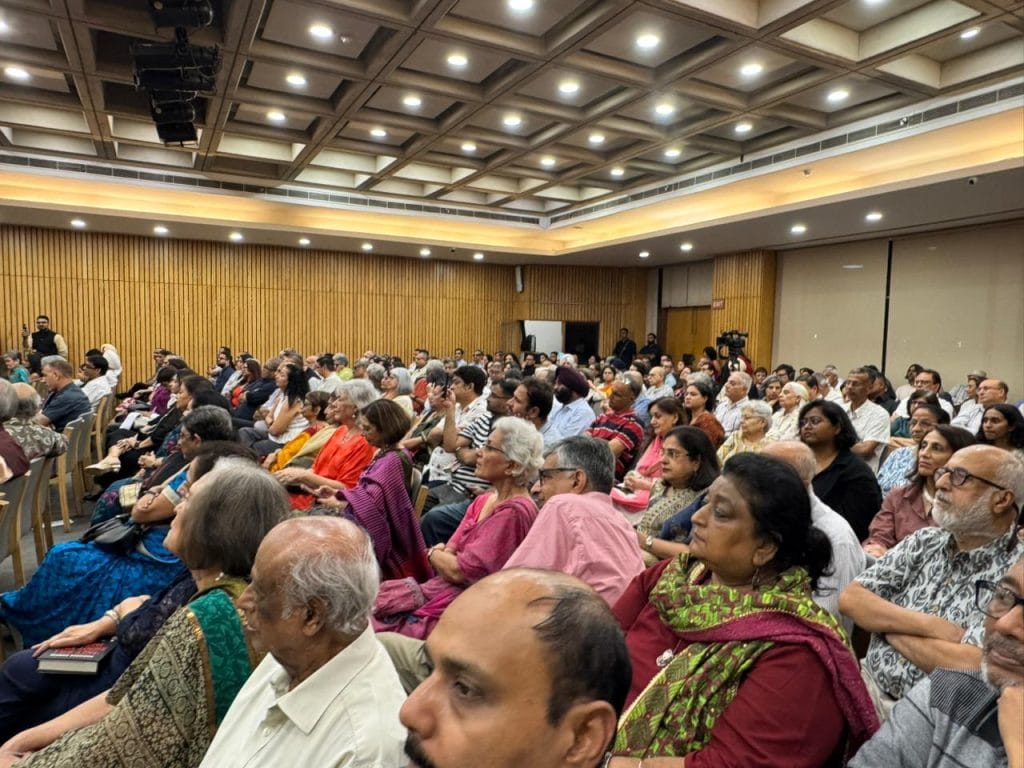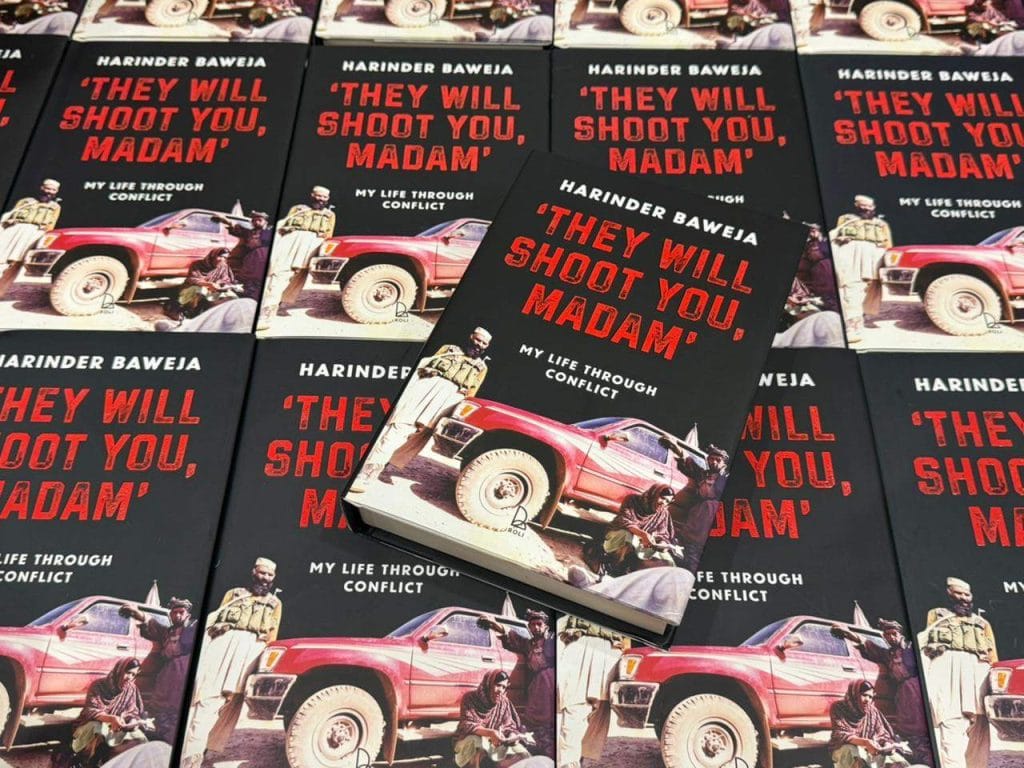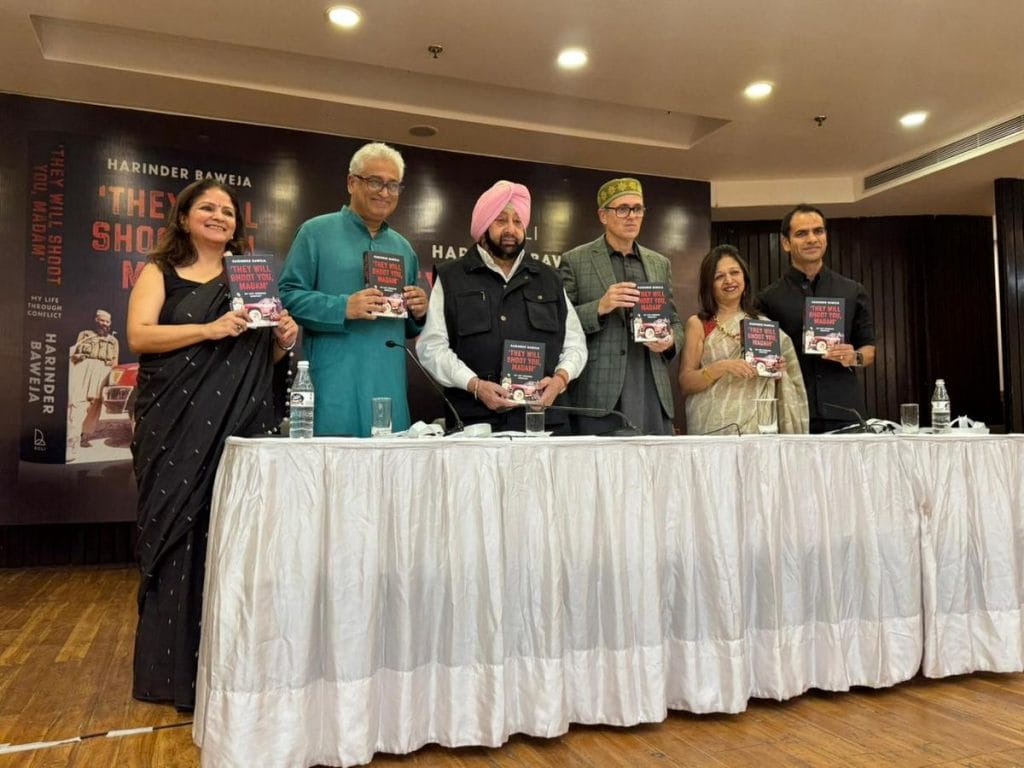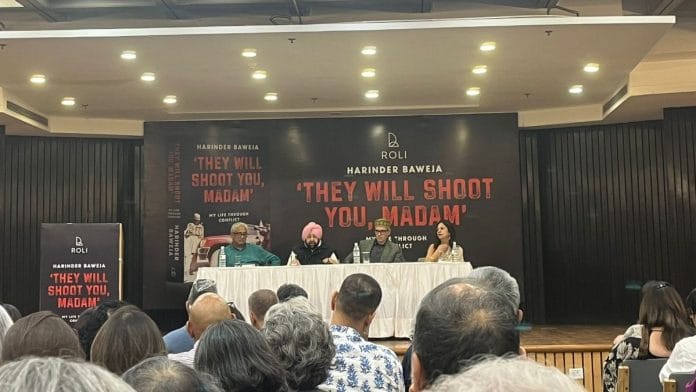Delhi: Weeks after Operation Blue Star, the Golden Temple in Amritsar was still barricaded. But Captain Amarinder Singh, who had resigned as Congress MP in the wake of the operation, found a way in. Chaos broke out, police fired in the air, and a crowd ran helter-skelter. Amid this mayhem, a young woman was about to be knocked down when Singh grabbed her by the scruff of the neck and brought her to sit beside him.
“Who are you? I asked,” recounted former Chief Minister Amarinder Singh of that first meeting. “‘I’m Harinder Baweja,’ she replied. ‘I work for the Sunday Observer.’” On 28 September, he was part of the panel discussion during the launch of her book They Will Shoot You, Madam: My Life Through Conflict.
That encounter was an early milestone in Baweja’s career. Over the next four decades she reported on India’s biggest conflicts and crimes — Operation Blue Star, the Kashmir insurgency, and even an interview with underworld don Chhota Rajan.
The panel discussion, moderated by senior journalist Rajdeep Sardesai, included Baweja, Singh and Jammu & Kashmir Chief Minister Omar Abdullah. It was threaded with anecdotes, sharp questions about the state of the nation, and Baweja’s stories from the frontlines.

The hall at the Kamaladevi Complex in IIC was packed with familiar faces — ThePrint Editor-in-Chief Shekhar Gupta, MP Manish Tewari, lawyer Rebecca John, journalist Nidhi Razdan, among others — all gathered to hear Baweja speak. Her resilience and fearless spirit came up more than once.
“More than being fearless, it was a time when journalism itself was fearless. We were trained to hold truth to power. Today, unfortunately, we’re conquering Lahore one day and Karachi the next,” Baweja said, as the audience broke into applause.
Before launching the book, Baweja thanked Singh and Abdullah: “My life in conflict began in Punjab, where Captain Singh was the first person I met. Omar and I go back nearly 25 years — he’s always been generous with his time, even during the most turbulent phases.”
Also Read: Indians are still rejecting Left ideology. New book says there’s resurgence ahead
When Chhota Rajan called
Back in 1996, Baweja flew to Malaysia for what would turn out to be one of the biggest scoops of her career: an interview with underworld kingpin Rajendra Sadashiv Nikalje, better known as ‘Chhota Rajan’, then a fugitive. Rajdeep Sardesai steered the discussion to that episode, pulling out anecdotes from the book without giving away too much.
As it happened, it was Chhota Rajan himself who set up the meeting. He called the office reception at India Today and asked Baweja to meet him in Kuala Lumpur.
“I had interviewed Chhota Rajan not once, but thrice — the first time in Kuala Lumpur after the 1993 Mumbai blasts. One morning at India Today, the receptionist casually said, ‘Some Chhota Rajan had called.’ I froze and asked, ‘What? The Chhota Rajan?’”
Before this, there were no photographs of Chhota Rajan in the public domain.
“India Today was the only magazine at the time that got pictures, because he allowed me to go through his marriage album. I got pictures of him with Dawood also in them,” Baweja told the rapt audience.

Also Read: Nobody found fault with Wangchuk when he was praising Modi—Omar on Ladakh violence aftermath
Yasin Malik’s ‘friendship’ offer
Baweja also got the opportunity to interview Yasin Malik, the Kashmiri separatist leader. She recounted in detail the day in the 1990s when Malik was set free, while Rajesh Pilot was Minister for Internal Security. Malik had been accused of killing four Indian Air Force officers and of kidnapping Rubaiya Saeed, daughter of then Home Minister Mufti Mohammad Sayeed.
“It was a covert deal. So, there was a deal made in which Yasin Malik was released in the hope that he would go back to Kashmir in the 90s and pacify the situation,” Baweja said.

Baweja booked herself on the same flight as Malik. She wanted to document the reception he got when he reached Srinagar. Normally, the journey from Srinagar airport to Maisuma takes 40-45 minutes.
“However, that day it took me 6-7 hours because people had turned out in the thousands. He was considered the grand hero of Kashmir’s liberation movement. The government was hoping that he would go there and declare a ceasefire and help kickstart a political process,” recalled Baweja.
As soon as Malik reached the stage in Maisuma, he tripped and fell. Two days later, Baweja got a phone call for an interview with him at the hospital. Except, it was in the middle of the night. Baweja recalls that it was risky and foolish to be out in the streets at that time. But the journalist in her took the risk.
But when she got there, Malik seemed disinterested in answering questions. Instead, he extended his hand and asked: “Would you be my friend?” Baweja froze but managed to carry on a conversation. A second meeting with Malik went much the same, according to her.
During the discussion, Sardesai asked her to recount the friendship proposition. “If I may use that word, I would call it harassment,” she said.
(Edited by Asavari Singh)






